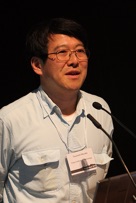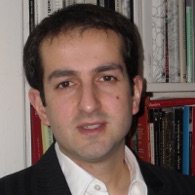Mining and learning on heterogeneous networks [ **** Annulée ***]
Social network analysis is one of the popular research fields in Web mining. Understanding the structures and processes on real networks is important for recommending similar items and controlling the behaviors on networks such as information diffusion and disease propagation. Although social media (such as twitter or Facebook) are artifacts, mechanisms and models of their structural growth are not clarified. Most of the early researches on social network analysis are for simple networks that are composed of only one type of nodes and edges. However, real social media are not so simple. For example, YouTube can be regarded as a huge network of three types of nodes (users, videos, and tags). Most of the methods for social network analysis are mainly for simple networks. In order to represent complicated social media as simple networks, excessive abstraction is made. This abstraction loses the information the original social networks have, which makes the interpretation of the social network analysis results more difficult. In this talk, our attempts for mining and learning on heterogeneous networks are explained. Three main topics will be covered in theis talk :
(1) community detection in n-partite networks
(2) constrained community detection in simple/multiplex networks
(3) transductive classification on n-partite networks



